Abstract
In many countries a spouse, usually the husband, can veto a partner's use of family planning services. Where spousal veto acts as a barrier to family planning services it represents a serious threat to the lives and health of women and children. Removal of spousal authorization requirements has been shown to increase the use of family planning services. The Family Guidance Association of Ethiopia, for example, removed their requirement in 1982 and clinic utilization increased by 26 per cent within a few months. Courts of several countries have held that spousal veto practices violate principles of personal privacy and autonomy and the right to health care. The effect of such judgements has been to reinforce rights to sexual nondiscrimination found, for example, in national constitutions and the Convention on the Elimination of All Forms of Discrimination against Women. This article discusses the nature and application of spousal veto practices, explains how such requirements can violate certain human rights, and explores possible remedies to this problem, including ministerial, legislative, and judicial initiatives.
Full text
PDF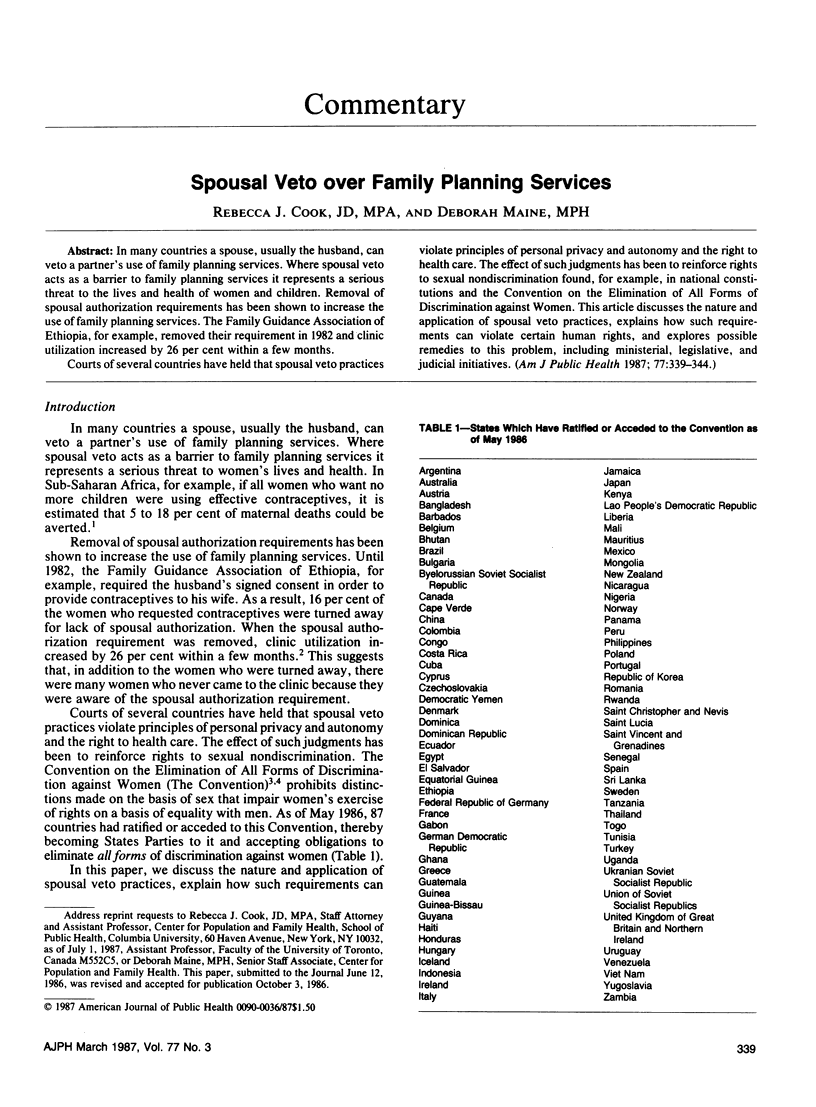
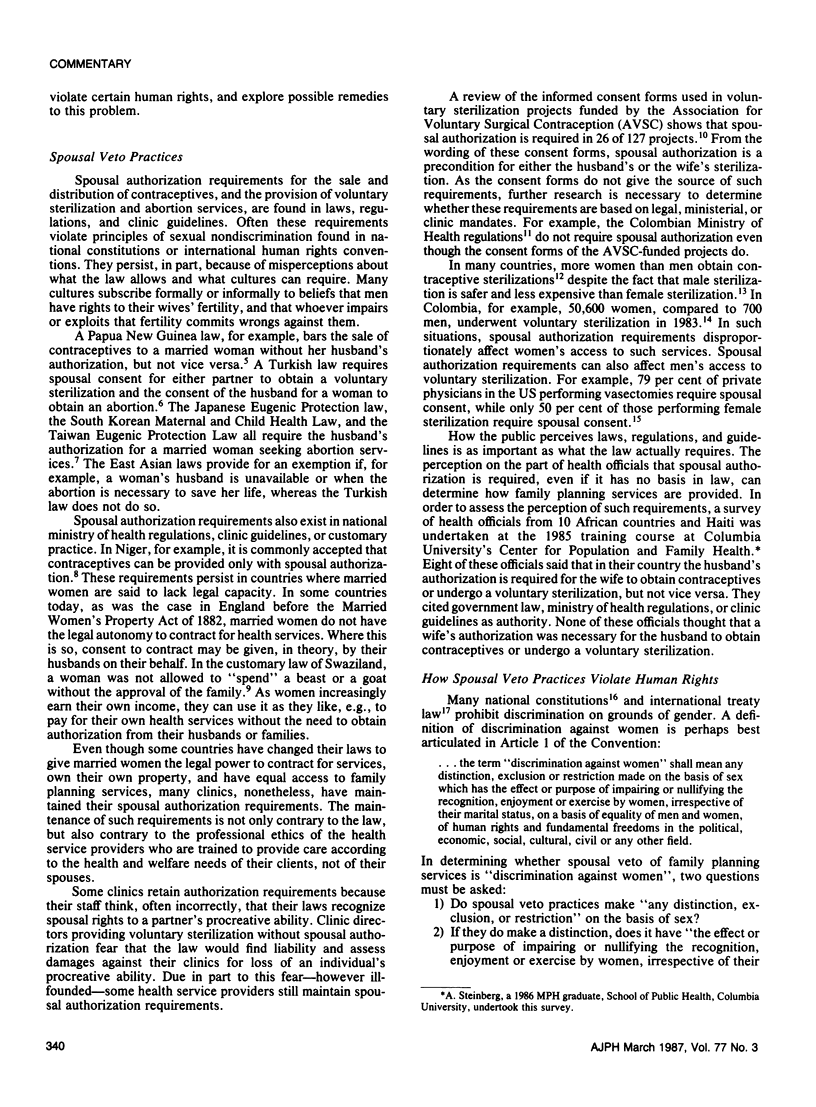
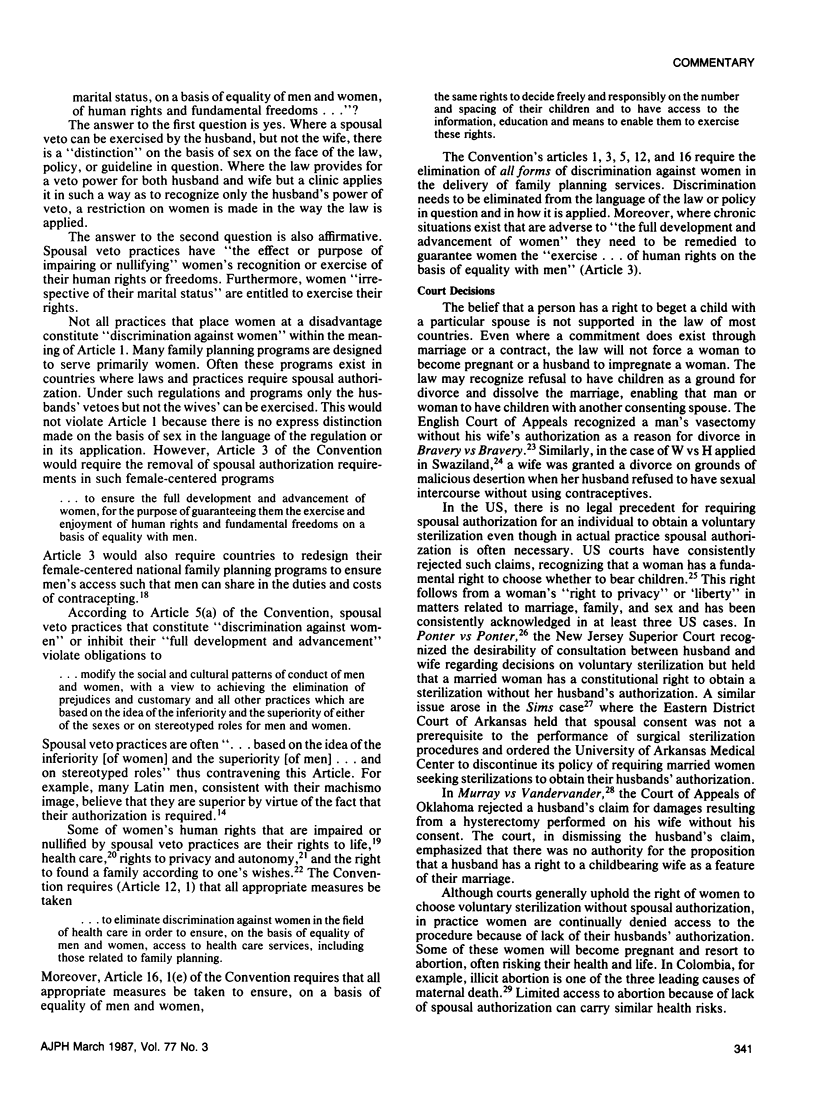
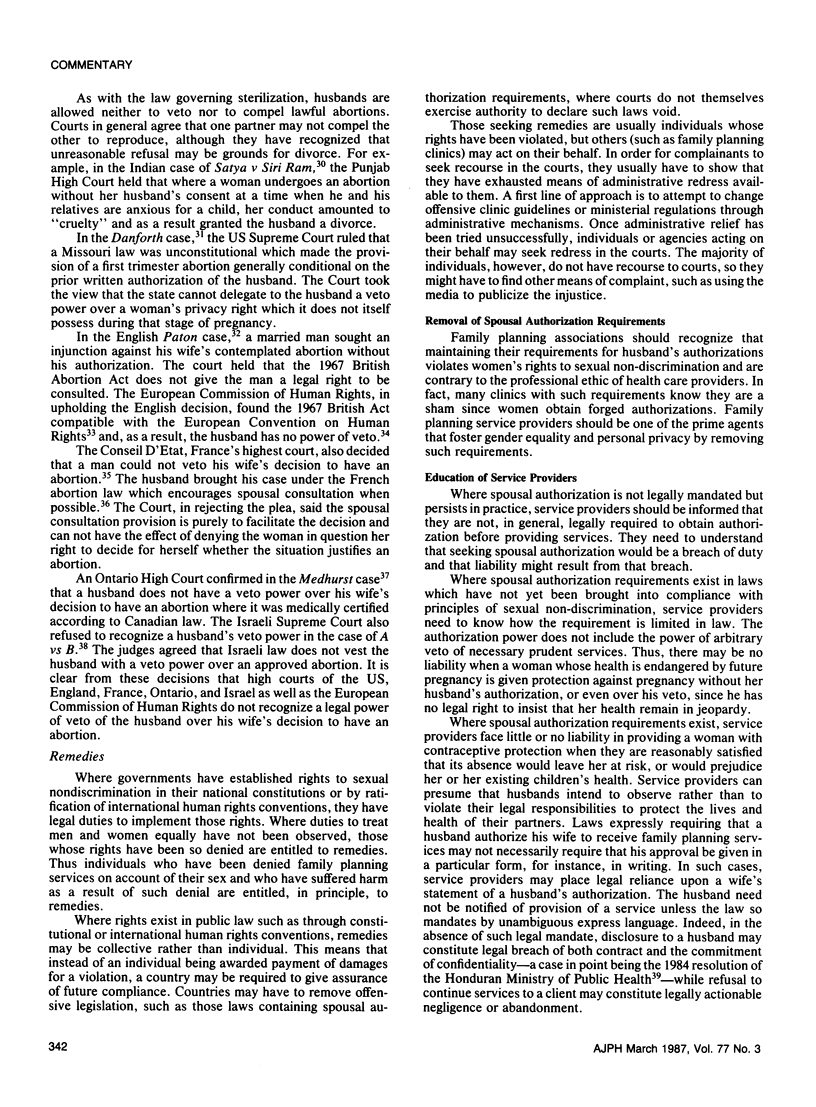
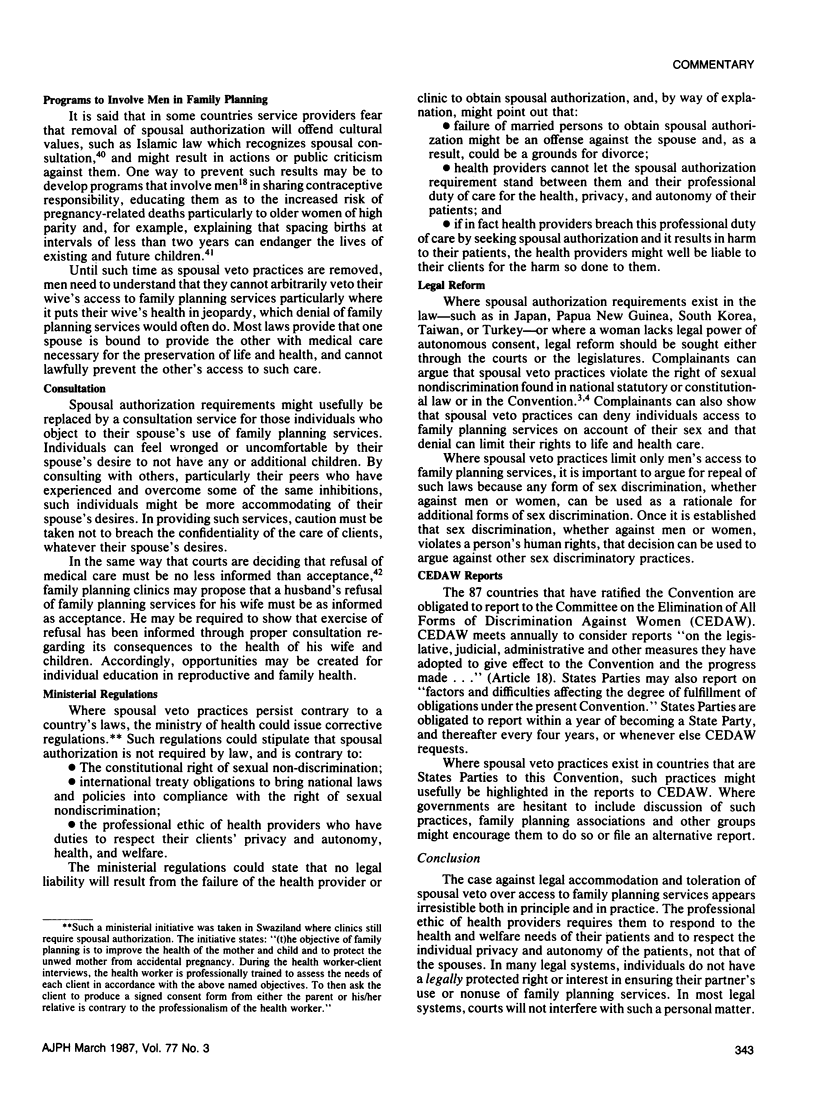
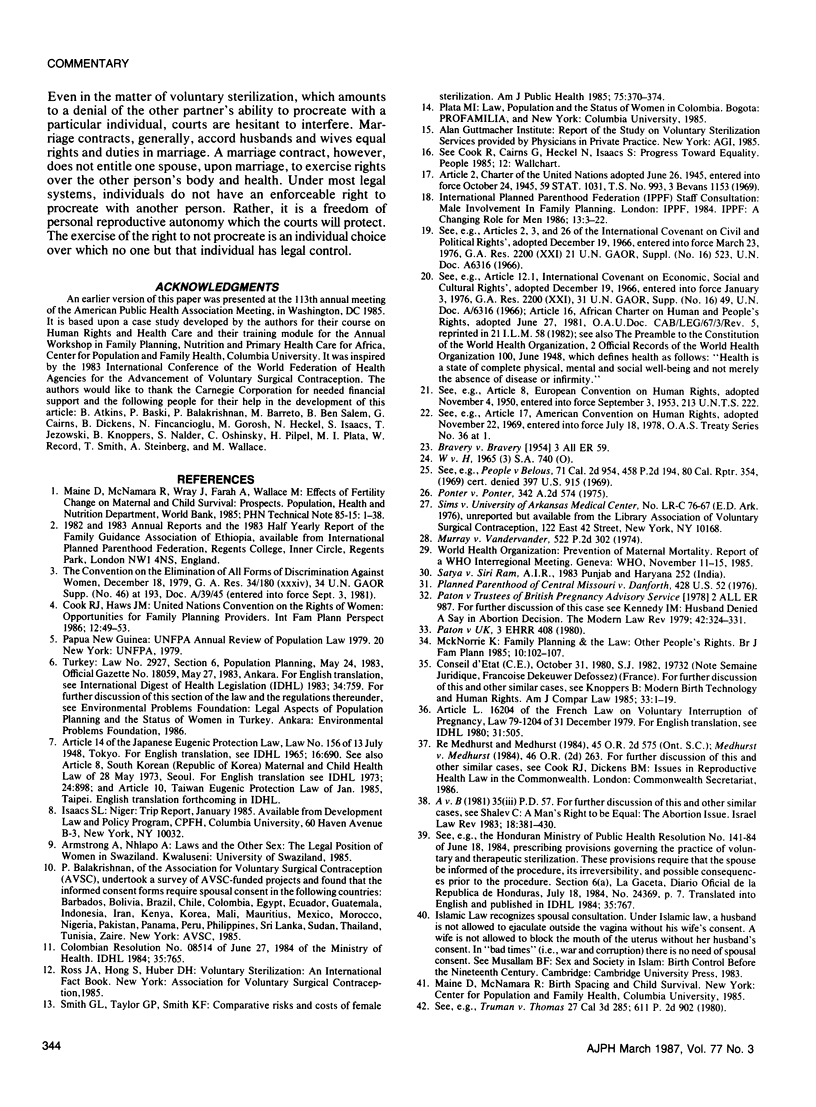
Selected References
These references are in PubMed. This may not be the complete list of references from this article.
- Shalev Carmel. A man's right to be equal: the abortion issue. Isr Law Rev. 1983 Summer-Autumn;18(3-4):381–430. [PubMed] [Google Scholar]
- Smith G. L., Taylor G. P., Smith K. F. Comparative risks and costs of male and female sterilization. Am J Public Health. 1985 Apr;75(4):370–374. doi: 10.2105/ajph.75.4.370. [DOI] [PMC free article] [PubMed] [Google Scholar]


